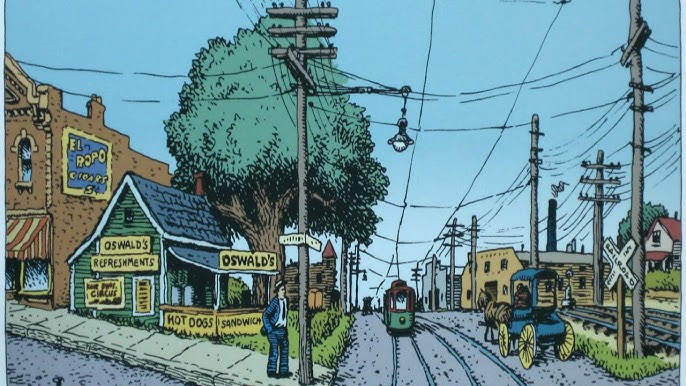
As a founding father of the “belowflooring comix” transferment within the Sixties, R. Crumb is both respected as a pioneering satirist of American culture and its extraes or reviled as a juvenile purveyor of painfully outmoded intercourseist and racist stereosorts. Crumb doesn’t apologize. He helps to keep paintingsing, and his lovers are grateful. He has parlayed his intercourseual obsessions and outsider relationsend to black culture into an intriguing imaginative and prescient of the countake a look at that displays its personal repairations up to the ones of the artist/writer of comics like Zap and Weirdo.
However Crumb’s paintings—permeated by way of drug use, pop-culture references, skirt-chasing oversexed males, very specifically formed (and at all times intercourseually availin a position) ladies, and all types of creepy belowflooring characters—has another aspect: a virtually sentimalestal connectment to purist Americana from the late-nineteenagerth/early-twentieth century. Maximum significantly Crumb is an antiquarian collector of old-time song—nation, jazz, ragtime, the blues—in addition to a musical interpreter of the similar. Certainly one of my favorites of his books collects a sequence of trading playing cards he made into R. Crumb’s Heroes of Blues, Jazz & Countake a look at, a reverential set of illustrations of folks musicians, accompanied by way of a CD of Crumb-curated song.
Crumb’s love for simpler instances is greater than the passion of an aficionado. It’s the turn aspect of his satire, a style that maynow not flourish as a critique of the current without a corresponding imaginative and prescient of a golden age. For Crumb, that age is pre-WWII, pre-industrial, rural—a time, as he has put it in an interview, when “people may just nonetheless categorical themselves.” His experience with the slop of American popular culture was once decidedly much less idyllic. Ian Buruma writes in The New York Evaluation of Books:
Crumb, like his brothers, soaked up the TV and comics culture of the Fifties: Hey Doody, Donald Duck, Roy Rogers, Little Lulu, and the like. Whilst on LSD, within the Sixties, Crumb considered his thoughts as “a rubbish receptacle of mass media pictures and enter. I spent my entire kidhood soak uping such a lot crap that my consistent withsonality and thoughts are saturated with it. God best is aware of if that is affecting you physically!”
Crumb’s comic artwork—which he has described in nearly therapeutic phrases as an emptying of his “rubbish receptacle” subconscious—is balanced by way of his extra sober and nostalgic illustrations, the counterweight to the “crap” of his kidhood media expopositive. One would possibly even bring to mind Crumb’s consumption of old-time song and imagery as one of those cultural well being meals vitamin. One of the vital popular of his nostalgic works is “A Quick History of America” (1979), a sequence of panels displaying the shift from open countake a look ataspect, to the city settlements introduced by way of the railroads, to the gross overdevelopment of the late-twentieth century. The one textual content but even so the name (and the burgeoning invoiceforums and boulevard indicators) is a coda on the bottom-right-hand of the final panel asking, “What subsequent?!!!” You’ll see the comic animated above (most sensible), set to an old-time piano piece. Another have compatibilityting version of his imaginative and prescient of the rustic’s expansion (or ruination) is above, in color, scored by way of Joni Mitchell’s “Giant Yellow Taxi.” See the entire collection of pictures right here and right here, and ensure that to try Crumb’s 3 epilogue specul. a.tions on what’s subsequent.
Be aware: An earlier version of this put up originally seemed on our website online in 2013.
Related Content:
R. Crumb Describes How He Dropped LSD within the 60s & Quickly Discovered His Artistic Taste
Robert Crumb Illustrates Philip Ok. Dick’s Infamous, Hallucinatory Meeting with God (1974)
R. Crumb Presentations Us How He Illustrated Genesis: A Religionful, Idiosyncratic Illustration of All 50 Chapters
R. Crumb’s Heroes of Blues, Jazz & Countake a look at Features 114 Illustrations of the Artist’s Favourite Musicians
Josh Jones is a author and musician primarily based in Durham, NC. Follow him at @jdmagness
Recommend a fun game: sprunki download
